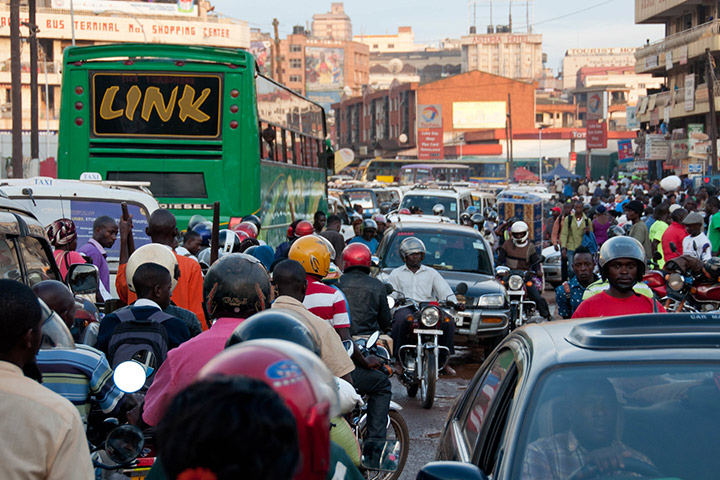How Much Will Electrifying Motorcycle Taxi Fleets in Uganda Help Human Health and Reduce Emissions?
How Much Will Electrifying Motorcycle Taxi Fleets in Uganda Help Human Health and Reduce Emissions?
How Much Will Electrifying Motorcycle Taxi Fleets in Uganda Help Human Health and Reduce Emissions?
Program: Catalyst Grants
Program details » | All Catalyst Grants projects »

Photo credit: Carlos Felipe Pardo
Project Team
- Michael Craig - U-M School for Environment and Sustainability (SEAS) (PI)
- Pam Jagger - U-M SEAS
- Herek Clack - U-M College of Civil and Environmental Engineering (CEE)
- Thomas Courtright - U-M SEAS/TCAUP
- Jacob Calzavara - U-M Erb Institute
- Junghoon Park -U-M Erb Institute
- Étienne Saint-Sernin - Zembo co-founder
- Daniel Dreher - Zembo co- founder
Project Summary
Rapidly urbanizing cities across low and middle-income countries suffer from poor air quality, which contributes to morbidity and mortality. In these cities, transportation fleets are major emitters of local air pollutants and often include hundreds of thousands of fossil-fueled motorcycles.
Companies like Zembo (est. 2017) have begun to deploy electric motorcycles to yield social and environmental benefits, including improved air quality and health outcomes. Working closely with Zembo, this project team developed a modeling framework to estimate the emission benefits of the company’s operations, as well as the benefits that would come from a widespread shift to electric motorcycles across Kampala, Uganda, where Zembo is headquartered.
The team's work resulted in a peer-reviewed publication. They have also disseminated some of the results through an accompanying MS project in the School for Environment and Sustainability and will engage in further dissemination leveraging local contacts once published. Zembo has also found this work valuable in understanding their value and in driving future actions.
News & Resources
- Michigan News: Electrifying Motorcycle Taxis in Kampala, Uganda, Shows Air Pollution Benefits [NEWS RELEASE]
- Transportation Research Part D: Transport and Environment: Emissions Impacts of Electrifying Motorcycle Taxis in Kampala, Uganda [JOURNAL ARTICLE]
This project received a $10,000 Catalyst Grant in 2020.